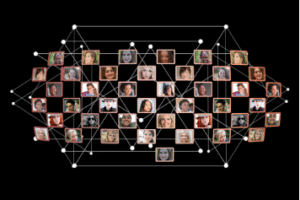April 27, 2020

By Trevor Gore
The Covid-19 pandemic has dramatically changed our lives, and particularly in how and where we work. The growing work-from-home trend has accelerated with a recent survey showing that since the pandemic began, working from home has grown from 72% compared to 34% pre-pandemic. This has meant a fundamental shift in the way employees communicate, collaborate, and accomplish tasks ranging from product development to sales, to customer service and support.
Communication is essential for remote workers. Building and using a variety of channels to discuss both professional and personal matters prevents you feeling isolated. You need to be considerate of the lives of others and understand the need for different methods of communication for different purposes.
Think about the challenges of working between different time zones and how this influences the type of platforms you choose to use for effective communication.
Try switching most remote communication to regular video calls, which are a much better vehicle for establishing rapport and creating empathy than either e-mails or voice calls. Design virtual team-building rituals that give people the opportunity to interact regularly and experience their collaboration skills in action.
Without the frequent distractions of an office, it’s easy to end up glued to a makeshift office chair, forgetting to take time out. It’s just as important to remain connected on a human as well as a professional level. Having a mundane chat with colleagues about your weekend or your pets can be as valuable as contributing to the team strategy meeting. So, introduce virtual tea breaks and encourage people to down tools for 15 minutes and come together to share photos, stories etc. When in the office we usually have the water cooler moments when we discuss last nights must watch TV, share our holiday plans etc. It is important that these moments are not lost, as it helps to grow team adherence, as well as promoting mental wellbeing (20% of remote workers feel isolated).
Also create an opportunity to share what you’ve done and celebrate success. In the office people see what we do and also hear about our successes (and failures). WOW Wednesday or Fantastic Friday are great times for teams to catch up on your successes and share theirs.
Team members may not share the same work hours, lunchtimes or even be awake at the same time. Therefore, you need to have a shared understanding of expectations. Remote teams need to create new norms that establish clarity in communication. Companies such as Merck have created acronyms for their digital communications like “Four Hour Response (4HR)” and “No Need to Respond (NNTR)” that bring predictability and certainty to virtual conversations.
When it comes to the ‘work’ part of remote working, many of the systems/procedures that you depend on in the office, might not be available to you at home. It’s important that you find a systematic way of scheduling your work. Kanban is a Japanese word which roughly translates to “a card you can see”. Basically, you organize tasks as cards on a board. You then track progress by moving them across 3 different columns. (to do, Doing and Done). Place each task card or post-it note in the To Do column. As you start working on it, move the task card into the Doing column. Once complete, move the task into the Done column. Kanban software boards have the added bonus of allowing team members to view the tasks their colleagues are working on in real-time. Watching cards move across the boards from ‘To Do’, to ‘Done’ gives a great sense of accomplishment. There are several such products available such as Trello and Virtual Kanban.
We don’t know how long the lockdown will last, but if you create a community, set norms, collaborate and remember the social is as important as the professional, I think that when we do return to the office, that our teams will be at least as strong as they were before lockdown, if not stronger.
Trevor Gore Owner of Maestro Consulting and XPotential Senior Associate
